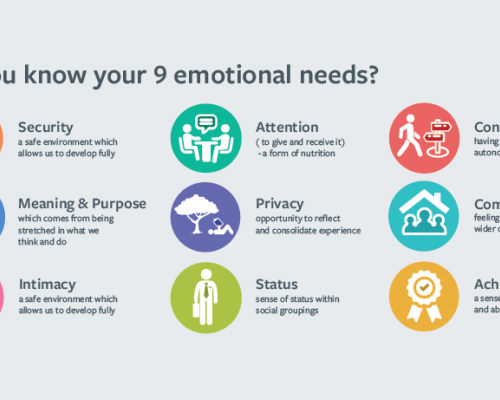Blue sky vision
There’s no mystery in the news that the 20th January is labelled Blue Monday and listed among our ever increasing list of mental health awareness days. Our (northern hemisphere) mid-winter holidays and celebrations are over, our loved ones have dispersed back to their own lives, we have spent more money than we should have done, we are back at work, days are short and cold. And just in case all this wasn’t enough to make us feel bleak, we are very likely to have added a new year resolution into the mix, might have jumped onto the “dry January” alcohol-free bandwagon, and may even have signed the Veganuary* pledge!
While the first couple of weeks of January may well have been spent quite enjoying the much needed rest from all that over-indulgence, both social and victual, by week three reality has struck: the resolution is tough to stick to, nothing has changed at work, the next holiday is a long way off, world news is just as worrying etc. To cap it all, there’s been time for that winter cold/flu bug to brew.
Learn more about the Human Givens approach with these free resources:
Despite best efforts, gloom can settle in like a low cloud, with habitual worries and anxieties coming out to play in the swirling mists, keep us awake at night and, if we don’t stop them in their tracks, pull us down the plughole of the cycle of depression. Cue Blue Monday.
What’s to be done to stop the seemingly inevitable slide into gloom? Let’s make use of some of my heady mix of metaphors to find solutions.
Seeing anxiety as an amorphous cloud swirling around us, weighing on our minds and obscuring clear vision, is useful because we can then imagine teasing it apart (like a ball of cotton wool) to identify the different elements, and to see the clear sky and sunshine beyond it. Divide and conquer, name and shame. However you choose to envision your anxiety, it’s going to be a lot easier to understand and overcome in bite-sized chunks than as one enormous beast.
How can we tease apart the elements? A good tool is the Emotional Needs Audit, as by taking a look at how well each of our essential emotional needs are being met, we can begin to ask more focussed questions and isolate which aspects of our lives are and aren’t working effectively.
For example, if our sense of security is compromised, is that to do with money, or relationships, or our home, or is it perhaps a response to wider issues: environmental, political, cultural, racial?
Thus identified, our list of the possible sources of anxiety can be sub-divided into categories and actions taken accordingly:
- Anxieties based on realities that can be dealt with on a personal level (eg finances, job, relationships)
- Anxieties based on realities that cannot be dealt with on a personal level (eg world events, environmental/political/economic) but that we might be able to contribute toward (eg donating funds/food/clothes to crisis zones, reducing food/plastic waste, joining a lobby group)
- Anxieties not based in reality, or exaggerated by imagination (eg future scenarios imagined via pattern matching with past events, or comparanoia borne of social media) that need to be seen for the futile worries that they are, and banished
Thus the amorphous cloud of anxiety, the huge beast bearing down on us and obscuring our view, can be reduced to an achievable list of things to do, things to contemplate and things to dismiss, and thus can be overcome, one chunk at a time, because as Walter Anderson famously said,
“Nothing diminishes anxiety faster than action”
In my HG teaching webinar discussing building resilience to stress (free to download) I emphasise the need for action in times of anxiety. We are built to respond to situations, rise to challenges and overcome difficulties. Our brains are problem-solving organs, ready to prime our bodies for action (fight or flee) at a moment’s notice. With the threat dealt with through action, our system can relax, rest and digest once more, like a zebra who has survived the lion chase.
Chronic stress develops when action is thwarted, or the source is ongoing (often the case in work situations ) whereby our bodies twitch with nervous energy and our brains actively seek new bones to gnaw at – crucially unable to distinguish between imagined and real threats.
I’m sure I’m not alone in experiencing the phenomena of a worry entering my head as if from nowhere, at times when everything seems happy and settled and I’ve just decided I can “stand down” for a bit. In this sense I liken our brains to active toddlers – if we don’t give them something positive to do they will find something to destroy!
Bringing this back to new year resolutions, there’s a vital element that ensures a much higher chance of success: make them positive, achievable and needs oriented. Giving things up is negative in that it leaves a void for the brain to fill. For example, if your resolution is to “give up smoking” your brain will focus on “smoking”, and sooner or later will drop the “give up” element. If you re-frame your resolution as “get fitter”, stopping filling your lungs with noxious chemical will become an obvious action to take. A more specific positive resolution is even better: “run 5km in May” for instance.
And as for Blue Monday - phah!
Now we know about this looming January pitfall, we can prepare for it, tackle it head on and overcome it with positive action. A reframe doesn’t go amiss here: blue is the colour of a cloudless sky, accompanied by sunshine – focus your 2020 vision on that.
[*a vegan diet is no hardship per se, but can initially be a shock to the system if going ‘cold turkey’ so to speak!]
Latest Tweets:
Tweets by humangivensLatest News:
HG practitioner participates in global congress
HG practitioner Felicity Jaffrey, who lives and works in Egypt, received the extraordinary honour of being invited to speak at Egypt’s hugely prestigious Global Congress on Population, Health and Human Development (PHDC24) in Cairo in October.
SCoPEd - latest update
The six SCoPEd partners have published their latest update on the important work currently underway with regards to the SCoPEd framework implementation, governance and impact assessment.
Date posted: 14/02/2024












